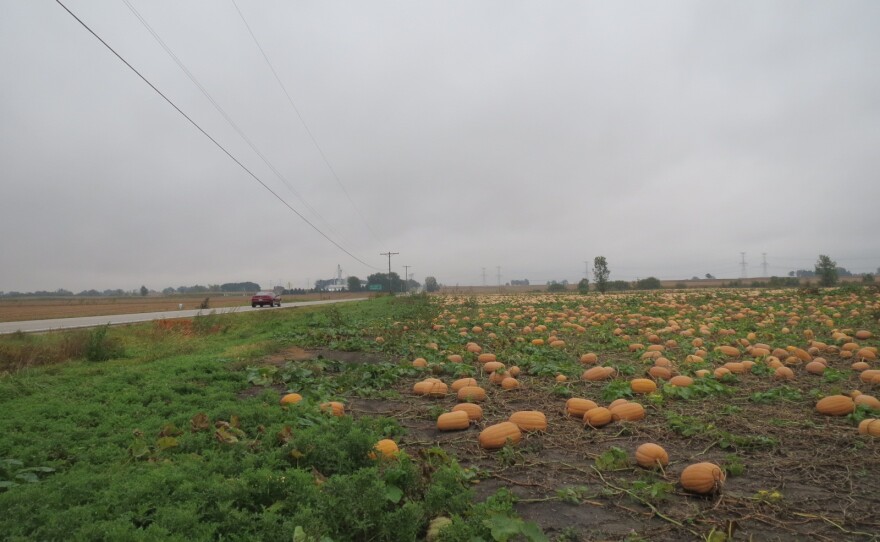The city of Morton is touted as the “pumpkin capital of the world” because Libby’s is based there. Libby’s holds the title because it dominates the U.S. production of canned pumpkin. But last year’s crop was devastated by heavy summer rains, too early in the growing season. Farmers reported yield losses as high as 90%. Peoria Public Radio’s Cass Herrington visited a 100-year-old family farm to see how it’s faring this year:
Ackerman Family Farm is situated just a few miles east of Morton, where pumpkins in varying shades of orange and brown dot the landscape for miles. A white stands at the entrance…
“My great-grandfather bought this farm, my grandfather, he helped build the house that we live in, my dad was actually born in the parlour of our house, and I raised my children in the same house, so we have a lot of history here.”
That’s farm owner John Ackerman. He transitioned his family farm from raising livestock to primarily growing pumpkin in the 80s. And he says his methods haven’t changed much:
“Ornamental ones that we grow here, and there are some food pumpkins that we grow here as well, they’re hand harvested. Every single one. And we’ll harvest as many as 30,000 pumpkins a year by hand, if you include all the little tiny ones.”
The processing pumpkins Ackerman grows for Libby’s are mechanically harvested. But he says, he’s had a change on the business side, especially after nine-eleven. Akerman says they thought they would see fewer visitors to the farm, but instead people started coming out in droves that fall:
“And What they really wanted was a chance to get away from the television, away from the radio, and for that moment, just enjoy the peacefulness of a farm, and they told us that, and we were stunned. Again realizing how blessed we are that we get to live out this kind of lifestyle.”
Ackerman says as large scale farm operations make up the bulk of the agricultural landscape, family-run farms have become more a point of nostalgia. He says it’s even therapy for some and he’s willing to make sacrifices to provide that opportunity.
Ackerman says last year it rained too much at the wrong time, and as a result, he lost 20 to 30 percent of his pumpkin crop. He says other farmers lost closer to 90-percent. But with losing a quarter of his crop Ackerman still needed to purchase pumpkins from another farm.
“When you have to purchase pumpkins from another farmer to sell at your own place, you just aren’t going to make any money to speak of. But, we made our customers happy, and that’s important”
This year’s harvest is “well above average,” but Ackerman says he may never make up from the losses.
“You know, this isn’t the way to get rich, if riches are measured in dollars. I think this is probably not the way. If riches are measured by enjoying what you do, yeah we’re blessed, we’re very rich.”
Ackerman sayshe hopes his customers get to share some of that richness too, if only for short visit.




